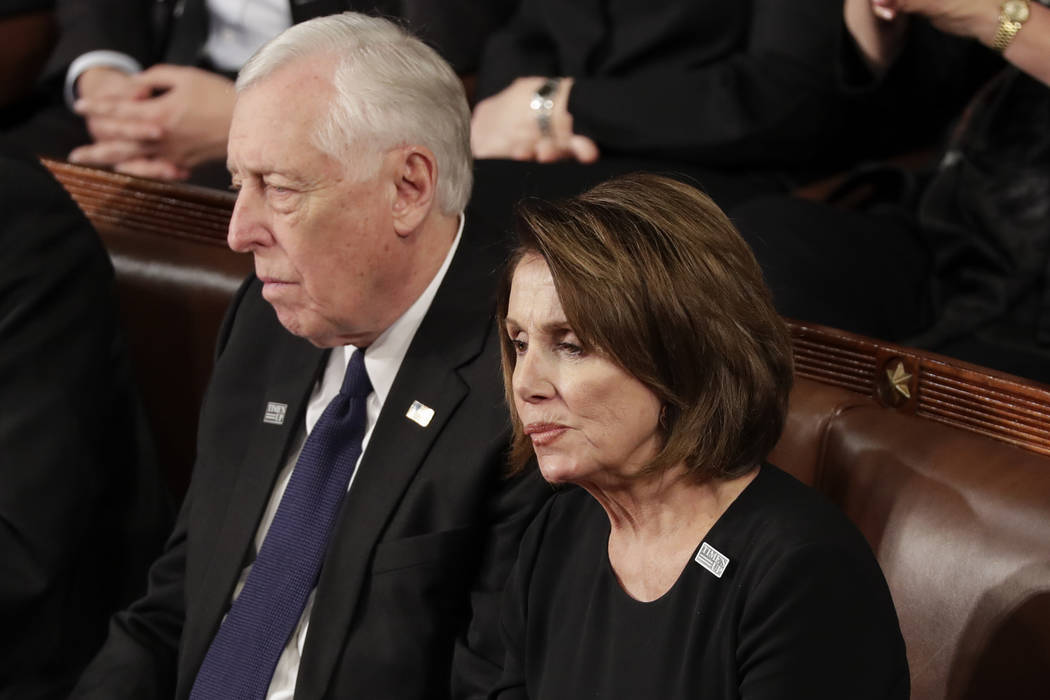Trump’s State of the Union needed talk about entitlements
President Donald Trump’s first State of the Union address was a political home run — in part because of what he didn’t say.
There wasn’t a single word about reforming the politically sacrosanct Social Security, Medicare or Medicaid. Talking about those programs isn’t popular, but it is needed.
The good parts of Trump’s speech — and there were many — were great. He highlighted the roaring economy, talked about how tax reform is putting more money in your pocket and detailed why America is a great country. It’s also nice to once again have a president who’s more eager to brag about America’s strengths than apologize for them.
Trump also benefited from Democrats’ bizarre decision not to applaud things such as the lowest African-American and Hispanic unemployment rates in history. You may not think Trump is responsible for this, but why not celebrate the good things Americans are experiencing?
But even in the longest SOTU since 2000, Trump never mentioned that entitlement spending is out of control. No one likes to talk about it, but the numbers show a solution is desperately needed.
In 2016, the federal government spent $3.9 trillion. Military spending accounted for just 16 percent of that. Twenty-four percent went to Social Security, and 26 percent went to programs such as Medicare, Medicaid and Obamacare subsidies. Another 9 percent went to safety net programs such as food stamps.
That means nearly 60 percent of federal spending is the government taking money from one person and giving it to another. If you think the money you’ve paid into Social Security and Medicare over the years wasn’t spent immediately … bad news — it was.
Federal spending didn’t always look like this. In 1900, entitlement spending accounted for about 5 percent of federal outlays. Even in 1960, it was less than 20 percent.
All this spending on entitlements has driven up the deficit. The federal government ran a $585 billion deficit in 2016 and a $666 billion deficit in 2017. The debt now tops $20 trillion.
That’s more than $63,000 a citizen or $170,000 per taxpayer.
It’s about to get worse.
Obamacare significantly expanded Medicaid eligibility. The number of enrollees jumped from 51 million in 2009 to 73.5 million in 2017. Around 10,000 Baby Boomers retire each day. They expect to collect the Social Security and Medicare benefits promised, even though their contributions are long gone.
Interest payments on the national debt constituted 6 percent of the nation’s spending in 2016. Compound interest is a powerful force. That’s good news if you’re saving for retirement. It’s bad news for a federal government facing long-term deficits. The Heritage Foundation projects that, by 2024, the United States will spend more on interest payments than defense. By 2031, entitlements and interest will consume all federal tax revenue.
Those numbers get worse if Trump gets a $1.5 trillion infrastructure deal without offsetting spending reductions.
The political problem is that any time Republicans mention entitlement reform, Democrats accuse them of wanting to kill grandma. Remember the 2012 ad that showed a caricature of VP-candidate Rep. Paul Ryan pushing an elderly woman off a cliff because he wanted to reform Medicare?
For his part, Trump has shown no appetite to spend his political capital on entitlement reform.
That’s too bad. The pursuit of short-term political popularity is a danger to America’s long-term fiscal health.
Listen to Victor Joecks discuss his columns each Monday at 9 a.m. with Kevin Wall on 790 Talk Now. Contact him at vjoecks@reviewjournal.com or 702-383-4698. Follow @victorjoecks on Twitter.



































